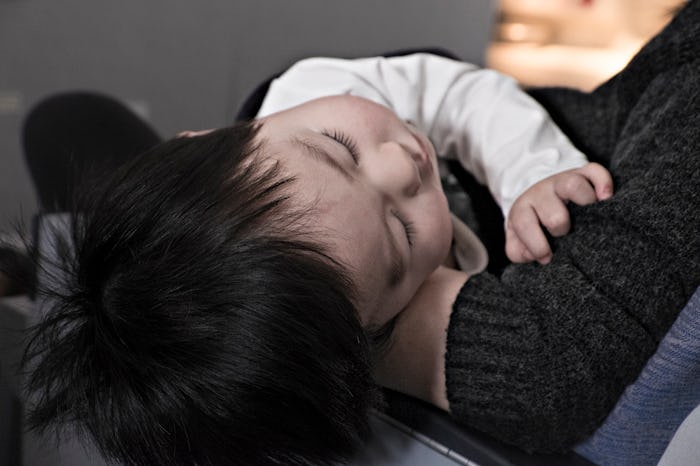When you enter the world of parenthood, you gain a whole new vocabulary along with a brand new baby. Phrases like "nipple cream" and "colostrum" have made their way into your lexicon, and the deeper you get into being a parent, the more new terminology starts popping up. But some of the parent-speak can get a little confusing, and can leave you a need for clarification. For example, one area of confusion for many parents is wondering are co-sleeping and bed sharing the same thing? The lines can get a little blurry on this hot topic, so if you want to get right down to what these terms mean, you're going to need to learn what makes them different.
It's common for people to use these terms interchangeably, but a closer look reveals that these are not the same thing. According to Kid's Health, the differences between co-sleeping and bed sharing are clear cut, but it's easy to see how someone may get the two confused. To set the record strait, here is what each term means.
Bed sharing, as the Guardian pointed out, is a baby and an adult (or adults) asleep in the same bed at the same time. This is sometimes referred to as the "family bed," as well. Co-sleeping is when a parent is within arm's reach of the infant, but doesn't necessarily mean they share the same bed, according to the website Very Well. This can be accomplished by using special products, such as a co-sleeper bassinet that scoots up right nest to an adult bed, or by keeping a regular bassinet within an arm's distance of the adult bed.
Both options offer parents a close proximity to their baby during the wee hours of the night, which is helpful when it comes to feeding and diapering needs. But neither option should be entered into without knowing the safety protocol. According to the American Academy of Pediatrics, bed sharing poses the highest risk for infant related deaths. This risk is so high because most people do not follow safe bed sharing practices, such as removing pillows, sheets, and other objects that could cause a baby to suffocate, according to What To Expect's website.
As for co-sleeping, as Dr. Sears's site pointed out that there are still necessary precautions to take when using a co-sleeper near the parent bed. It is never advised to co-sleep if you are under the influence of alcohol or drugs or are exhausted from sleep deprivation. These risk factors inhibit your ability to properly care for your baby at night, and present an increased risk.
It may be super technical, but there is a difference between bed sharing and co-sleeping. The most important thing to remember, that no matter what you call it or choose to do in your bedroom, the baby's safety should always be your number one priority.
